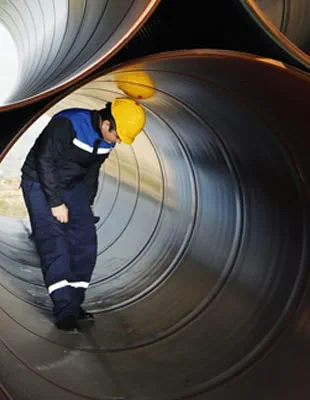The challenge
Aberdeenshire Council needed to develop more sustainable transport links and encourage active travel - such as walking or cycling – to help improve health and wellbeing.
Aberdeenshire Council needed to develop more sustainable transport links and encourage active travel - such as walking or cycling – to help improve health and wellbeing.
Our role helping to upgrade the 50-mile Formartine & Buchan cycle path and create two new long-distance cycle routes will ensure Aberdeenshire is better connected.
Over 100,000 people live near the new routes, which have been preserved not only as wildlife corridors, but as well-maintained, sustainable options for visitors and local people to enjoy.
The Formartine and Buchan Way is a popular cycle path extending more than 50 miles through the heart of rural Aberdeenshire. Running entirely off road, the route follows the former Formartine and Buchan railway, passing many local attractions and places of interest. It has been named one of Scotland’s great trails, but with an estimated population of 100,000 people living within easy access, there was a need to ensure the route was preserved not only as a wildlife corridor, but well maintained as a sustainable transport option for the use and enjoyment of visitors and local people.
With more and more people turning to cycling for both leisure and transport, Aberdeenshire Council needed to make sure that local cycling routes were preserved, and made safe and accessible for the increasing number of people using them. As such, we were appointed to investigate the feasibility of upgrading the existing Formartine & Buchan cycle route, as well as explore what measures would be needed to develop two more long distance cycle routes in the vicinity of the A90, which connects Aberdeen-Ellon and Aberdeen-Stonehaven.
Our role included conducting site audits to understand the state of the existing paths, consulting with key stakeholders, analysing potential routes and mapping associated opportunities and constraints, as well as producing cost estimates and a detailed cost benefit analysis for each potential option.
For the existing pathway, we developed a detailed map of proposed improvement measures, with costed recommendations for each. This meant analysing the existing route and surrounding highways, including a survey to investigate issues and opportunities, as well as key stakeholder consultations and surveys to understand the needs of local people and the communities and business that are impacted by the route.
When it came to assessing the feasibility of the two new cycle routes, we were able to draw on knowledge from our colleagues in the Netherlands to develop options and measures, map different routes and provide detailed cost estimates to ensure the quality would be in line with Dutch cycle design standards.
It was essential that all three routes cater not only for cyclists and pedestrians, but also be suitable for children and anyone with restricted mobility. As a result, we needed to ensure they were wide enough and, when the route ran alongside faster main roads, that there was room for a protective barrier between the path and the carriageway.
Sustainable and active travel options for everyone
Providing sustainable transport links was a key priority for Aberdeenshire Council, who have committed to encouraging active travel - such as walking or cycling – to help improve the health and wellbeing of local residents. Additionally, it is estimated that if visitors and tourists choose to use the cycle path rather than other methods of transport, we could see a reduction of up to 308.10 tonnes of carbon a year.
With our guidance, Aberdeenshire Council were able to secure match funding from Sustrans; a walking and cycling charity and custodian of the National Cycle Network. Thanks to this funding, the cycle path is on track to help Aberdeenshire be better connected, improving the wellbeing of residents and tourists, at the same time as protecting the local environment.
